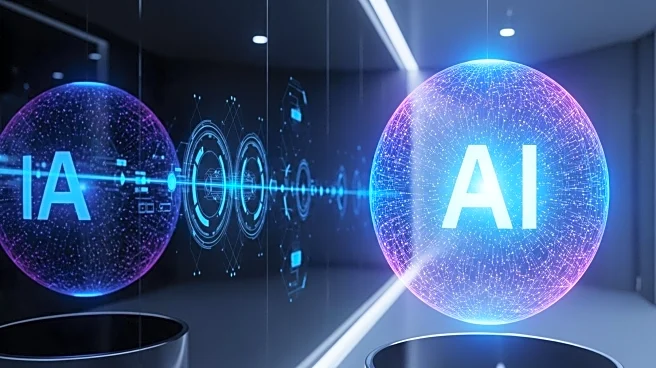What's Happening?
Jeff Bezos, the founder of Amazon, has expressed agreement with OpenAI's CEO Sam Altman regarding the existence of an AI bubble. Despite concerns about the financial risks associated with such bubbles, Bezos maintains a positive outlook, suggesting that the benefits of AI will be substantial. He compares the current AI bubble to the dot-com bubble of the late 1990s, noting that while financial bubbles can be detrimental, industrial bubbles like the current AI situation can lead to significant societal benefits. Bezos highlights the transformative potential of AI across industries, emphasizing that the excitement and investment in AI are likely to yield positive outcomes.
Why It's Important?
The acknowledgment of an AI bubble by influential figures like Jeff Bezos and Sam Altman underscores the heightened interest and investment in AI technologies. This situation presents both opportunities and challenges for investors and companies involved in AI development. While there is a risk of overvaluation and potential financial losses, the long-term benefits of AI advancements could be transformative for various sectors, including healthcare, finance, and manufacturing. The optimism expressed by Bezos suggests that despite the bubble, AI's impact on society and the economy could be overwhelmingly positive, driving innovation and efficiency.
What's Next?
As the AI bubble continues to develop, stakeholders in the technology and investment sectors will need to navigate the complexities of distinguishing viable AI projects from speculative ventures. Companies may focus on strategic investments and partnerships to leverage AI's potential while mitigating risks. The discourse around AI's transformative capabilities is likely to persist, influencing public policy and corporate strategies. Investors and industry leaders will be closely monitoring developments to capitalize on AI's benefits while ensuring sustainable growth.
Beyond the Headlines
The discussion around the AI bubble raises important questions about the ethical and societal implications of rapid technological advancements. As AI becomes more integrated into daily life, issues such as privacy, security, and job displacement may become more pronounced. The potential for AI to reshape industries and labor markets necessitates careful consideration of its impact on society. Policymakers and industry leaders will need to address these challenges to ensure that AI's benefits are equitably distributed and that its risks are effectively managed.









